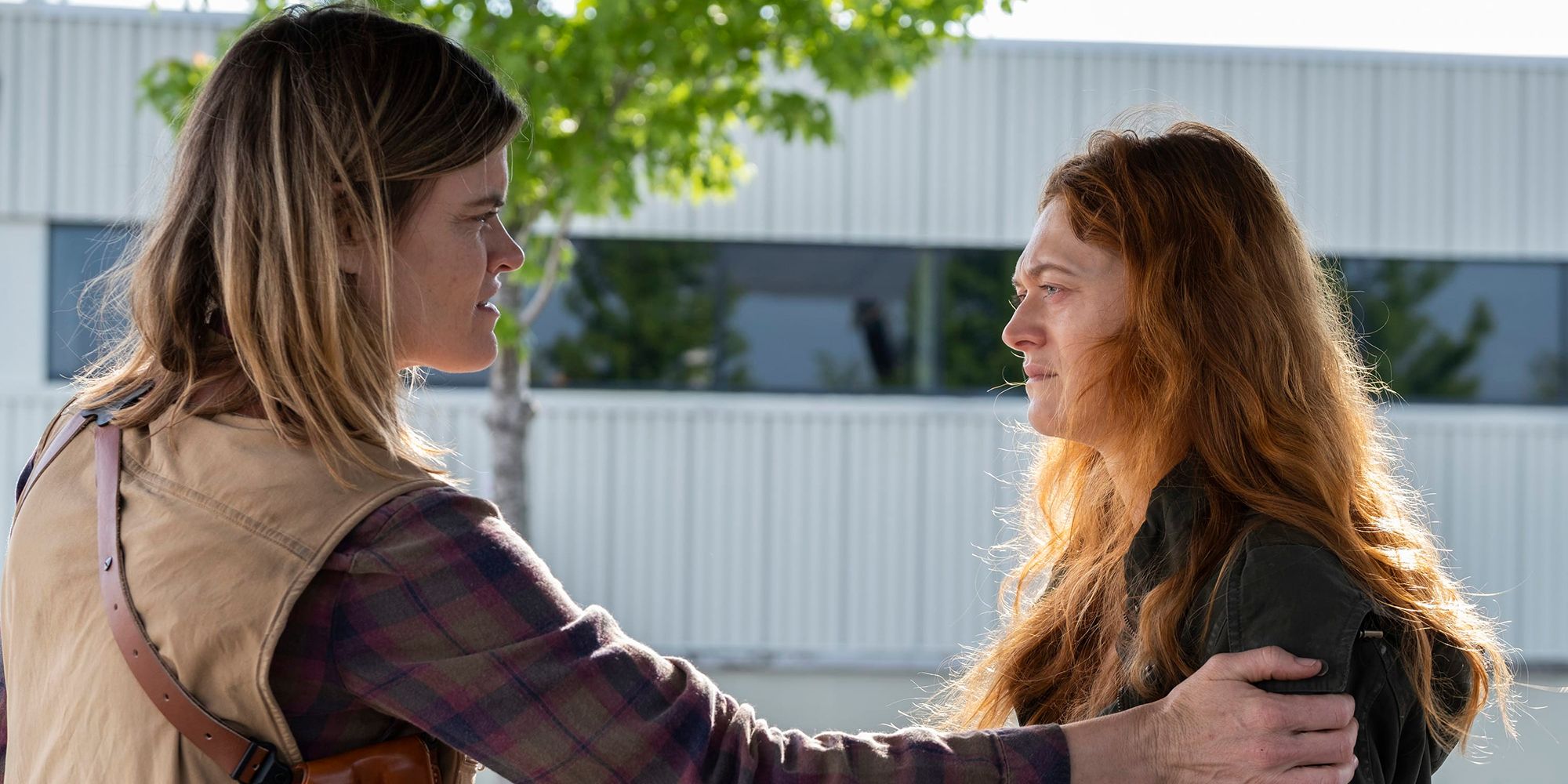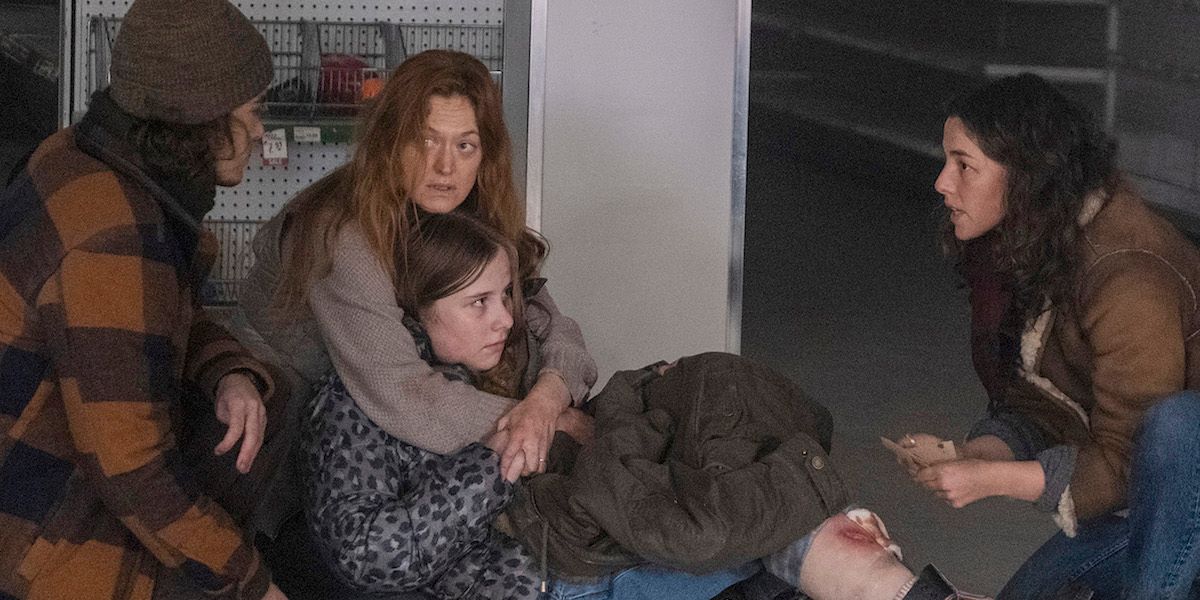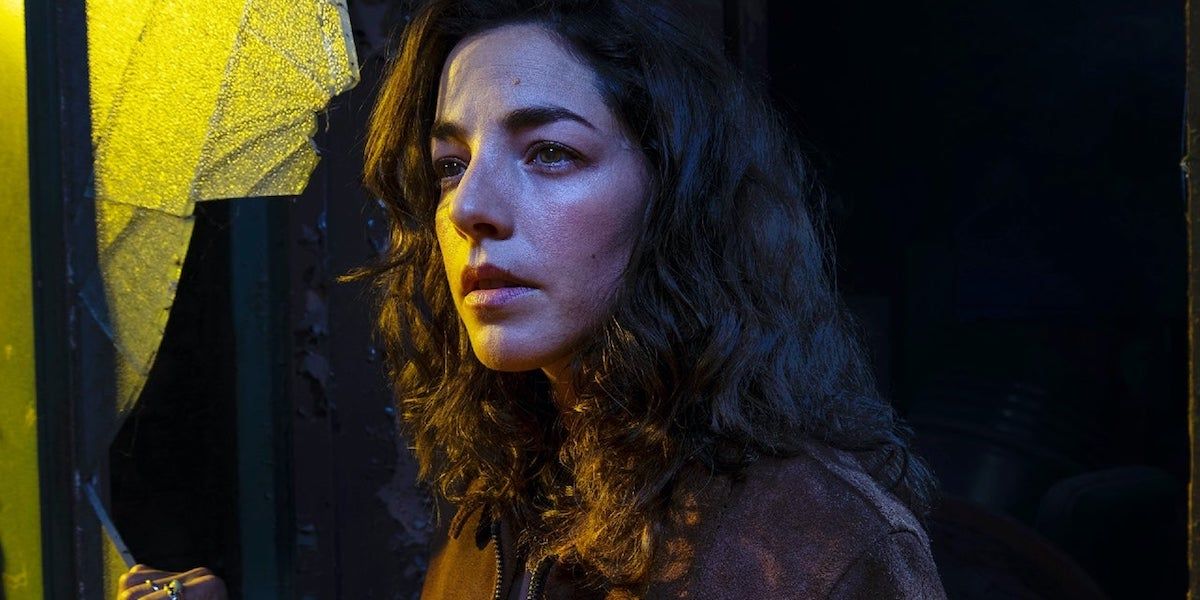SPOILER WARNING: This article contains major spoilers for "Victoria," the Season 1 finale of Y: The Last Man.
In its Season 1 finale, Y: The Last Man finally unveiled the true leader of the Daughter of the Amazons. After Roxanne's impromptu attack on Marrisville went sideways, resulting in casualties and bloodshed, Nora took her to task. Roxanne didn't want to hear it, so Nora responded in kind and shot Roxanne in the chest. With Hero's backing, Nora became the Daughter of the Amazons' new leader and unveiled her true identity as Victoria -- a name that should sound familiar to fans of the comic.
Speaking to CBR, Y: The Last Man showrunner Eliza Clark explained exactly why Nora is "a truly dangerous person in this world" now that she has embraced the new status quo. She revealed the best advice Roxanne gave Nora, as well as the moment that Hero recognized Nora as a true leader. She shared why letting Missi Pyle go was "the hardest thing I've ever had to do in my career" and how excited she was to explore female rage in the show. She also teased what Nora's rise means for the Amazons, broke down the changes to Beth's character and more.
CBR: I want to know everything about Victoria, from your thoughts on the source material to the way she was conceived for the show to the execution. Why the secrecy? Why go in this direction with her?
Eliza Clark: There's a couple answers to that question. The first is I'm a huge fan of the comic book, and the way I think about adaptation is that you don't want to watch the thing that you already love word for word, because the thing you love exists, and you can read it anytime you want to! So I wanted there to be surprises for people who love the book.
Then I also felt like that was one of the stories that needed updating. I think the Victoria of the comic book works perfectly in 2002, but I feel like there's so much more depth that can be attained for that character, and I'm interested in the ways that Nora's anger and her inability to have any kind of relief for it is what creates a truly dangerous person in this world.
I'm specifically interested in the choice of giving her a daughter. How did that enhance the character, in your eyes?
Well, I've never seen a villain who has a child, where the villainy isn't connected to her motherhood, if that makes sense. There's evil stepmothers and evil moms, but there aren't villains who are also parents -- or, at least, not women. I find that so interesting.
I feel like the way in which you meet Nora at the beginning of the series, she's unhappy in her life, even though everything on paper is perfect, basically. She just has no outlet for the feelings that she's having. I think a lot of her feelings are rooted in being the woman behind the man. But also, I find part of what makes her as fierce as she is in this story is that she is a mother, and that part of what her story is, over the course of Season 1, is learning what that means and what it could look like in a new way.
I also just think it's really interesting: the speech that Roxanne gives to Nora when they're on the horses in Episode 10, when she says, "You don't have to raise her to be somebody's wife or somebody's mother. She's never gonna have to punch a clock or have a boss." I feel like that is the only thing that Roxane has ever said that really appeals to Nora, and this idea that motherhood is about like preparing future people, instead of living yourself. [laughs] And that Nora is embodying this fierce motherhood, while also freeing herself from the constraints of traditional motherhood. I don't know! I just think it's really interesting to have that villain character have a kid.
It completely makes sense, from a story standpoint, that Roxanne had to go. Was that always the plan? How sad was it for you to let go of Missi Pyle after such a performance?
It was always the plan. The plan was always that Nora would become Victoria, and that the person who you think is the leader of the Daughters of the Amazons is going to have to die.
I will say that killing off Missi Pile was like the hardest thing I've ever had to do in my career. She's so amazing. Not only is she just incredibly talented, but she's just the best. Like, I want to work with Missi for the rest of my life. And she didn't make it easy! Every once in a while, she'd be like, "Hey Eli, maybe I don't die..." [laughs] So yes, it was incredibly hard. It was always the plan, but yes, definitely, it was tough to have to do that.
What does this shift mean for the Amazons and, specifically, Hero?
Well, I think it's exciting, because I think for a viewer, you're like, "These people are really scary." I mean, I think Roxanne is scary. Then, when when Nora takes over, you're like, "Oh, no. Now this group of people who have proven themselves to be capable of violence, now they're being led by somebody who has got master powers of manipulation, who's super intelligent, and who is persuasive..."
I think that Roxanne is a little bit of a blunt instrument, and I'm not sure that Hero ever fully bought into what Roxanne was selling. I think, obviously, Hero has been through a lot, and she has a lot of guilt and shame and self-hatred. That makes her right for a group where you can be somebody that you're not, that you can just change who you are and hide from yourself.
But I think that, in a scene in Episode 9 where Nora says to Hero, "Don't tell Roxanne your secrets. She's not worthy of them." I think that's where Hero is like, "Oh, shit. This woman can see me." I think that Nora, or Victoria, and Hero are going to become a fierce pair and their relationship, I think, is kind of limitless. It's going to be really interesting to see them together in Season 2, let's hope.
Speaking of Hero, that confrontation between her and Yorick looked ripped right out of the comics. However, she makes a much different decision in the show than she does in the comics. Why did you decide to deviate from the comics here?
What's interesting is that, when we set out, the writers and I, at the very beginning of writing Season 1, we knew we were leading up to a confrontation in Marrisville between Hero and Yorick. In my head, before we began, that confrontation was going to look very much like it did in comic book, with Hero willing to kill her brother. But then, as we kept writing, and as Olivia Thirlby brought so much nuance and heart and vulnerability to Hero, it just didn't feel like Hero to be ready to kill her brother in that moment.
But I do think she makes a really interesting choice, because she saves his life, but then she doesn't go with him, and she comes back to Victoria. I think, in some ways, she is breaking from her family in that moment. The whole first season, I think, for all of our characters, they begin the season clinging to who they were before and some idea of what the world used to be and their place in it. By the end of the season, for better or for worse, they have all come to terms with the fact that that world is not coming back, and that they're going to have to change.
I think, for Hero, she is recognizing that maybe Nora is the person she wants to come home to. I think that Hero's story, long term, she has a few more lows and bumps and obstacles before she can sort of find herself again.
Another character who goes through some major changes is Beth. Why was it important to you to make her more of an active character, and how did you land on this approach?
Well, there's two answers to that. The first is Juliana Canfield. I mean, she's just so talented. I think Juliana is unbelievable. So the idea of not having her beyond just one scene in the pilot, that wasn't gonna work for me. I had this incredible actor and I want to use her.
Then the second thing is that, I think, part of what this adaptation is doing is taking characters who -- you know, Amber Tamblyn talks about the fact that like, her character wasn't in the book, and in some ways, what she always draws on is this idea of she's in one panel and she's standing in the back, where the Republicans' wives and widows come to the White House. So to take a character who is the girlfriend of the hero, or the mother of the hero, and give them a story that extends beyond Yorick, I think was important to me in this adaptation.
So you'll learn more about Beth as the story continues, hopefully... She's the daughter of a single mother who has had cancer for a lot of Beth's formative years. When the event happens and she rushes to go find her mother, her mother's dead, and it's not because the cancer killed her; it's because she was sort of forgotten about. I think that really makes Beth angry.
We were showing all of the conspiratorial elements outside of the Pentagon and in Boston and in the wider world, and it just made sense to have a character who you can see that, whose lens of the world can be representing those people. The way that the show is shot, and the way that the story is told, is very subjective and through characters' points of view. So we were never going to have a storming of the Pentagon that didn't have a character that we know.
This show has been so great about having heroes who are flawed and villains who are sympathetic, but Regina Oliver was straight-up terrible -- just the worst! What made you decide to take her in this direction?
She's fun, though! Yes, I think that the truth is that you can't always get totally inside of every character. And Regina -- I think Regina is charming, and she's funny. I think she has a bunch of pretty great one-liners, and she stands up for herself. I think there's things to like about Regina.
But I also think it's important in a story that has so many things going on that you can know almost immediately that it would be terrifying to have Regina in charge of the US government, that she is in it for the pursuit of power and not for any kind of loftier goal. It makes her sort of unraveling in Episode 9 all the more exciting, because everybody talks about her like she's this lunatic and you don't really see it until 9. I mean, she obviously isn't very nice, but she's measured and calculated and smarter. Then, in Episode 9, when the presidency is right in her grasp, she really comes undone, and then literally is undone.
Beth is angry. Hero is angry. Nora is angry. Many of these characters are grappling with this feeling, for different reasons and in different ways. What has it meant to you to be able to express this, in a way that women so often aren't able to?
Well, I think that that is something that I have had -- it's taken me, I don't know, a 12-year career to get to the place where I could really talk about female rage... For me, in the last four or five years, I have really tapped into my own anger. I think that women are socialized to not think of anger as a thing that is acceptable for them. I think that that's part of what makes some of these characters so dangerous.
I think that the reason why Nora is dangerous is because she has no release valve for her anger. She's so angry, and she can't admit that to herself until Episode 9. Then, at that point, it's hardened within her and is going to come out in scary ways. Yeah, I think that rage and anger are a really potent feeling. I think that women in particular have been taught that it's not a feeling they're supposed to have. So yes, it is definitely one of the things that I'm most excited about exploring the series.
All ten episodes of Y: The Last Man Season 1 are now streaming on Hulu.



